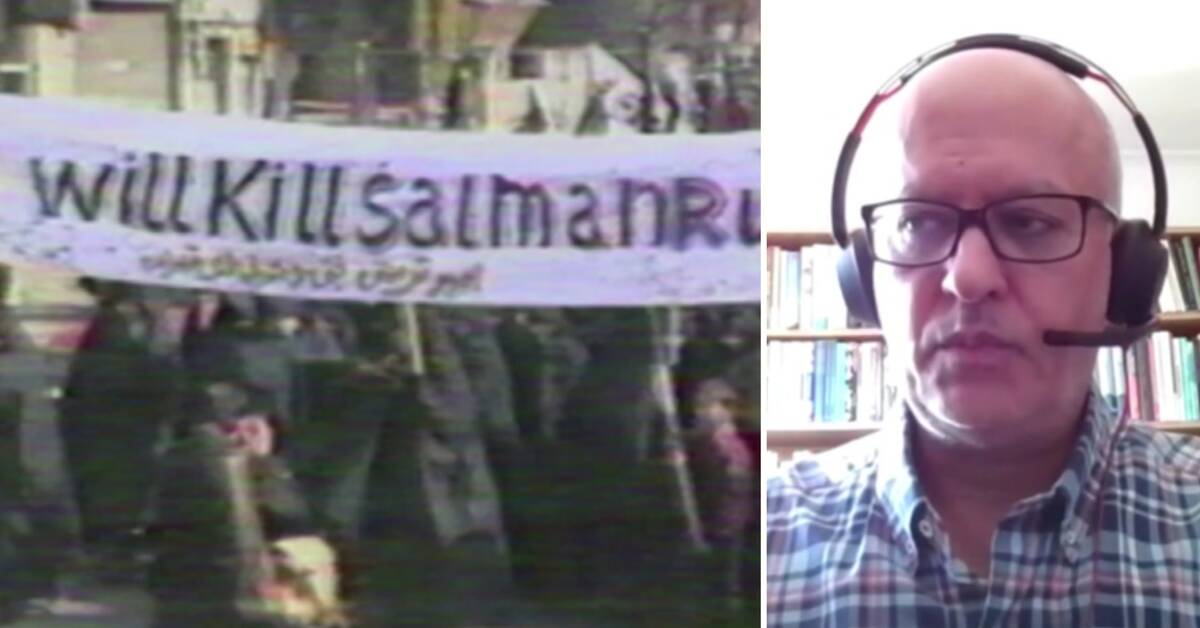On Friday, the author was injured in a knife attack.
A suspected perpetrator has been arrested, but the motive behind the crime is not yet known.
Salman Rushdie became world famous after he published the book "The Satanic Verses" in 1988, which partly touches on the life of the Prophet Mohammed.
The book was perceived as controversial by parts of the Muslim world and led to strong protests.
In early 1989, Ayatollah Ruhollah Khomeini in Iran issued a fatwa and reward money for whoever killed Rushdie.
"Thought the threat had died down"
Mohammad Fazlhashemi, professor of Islamic theology and philosophy at Uppsala University, describes a fatwa as a statement by a religious leader on a legal matter.
In practice, fatwas have come to be used for political purposes where they have often been effective, he believes.
According to Fazlhashemi, the threat directed at Rushdie was serious and the situation continued until the late 1990s when the Iranian government no longer committed to working to enforce the fatwa.
- Since then, many of us thought that the threat had subsided and that it had become more and more of a non-issue for the vast majority of people, he says.
History comes into play
The Iranian government has not commented on the knife attack against Rushdie.
Fazlhashemi does not believe that there is any official support for the attack.
However, he believes that other forces within the country may be interested in this.
The reason why Rushdie was perceived as controversial must be understood from the perspective of the political climate that prevailed in the Muslim world at the end of the 1980s.
There was a power struggle between different actors about who could best protect the rights of Muslims, and the fatwa against Rushdie then became a way to stick out the chin, says Fazhashemi.
Diminished importance
Today, however, he believes that fatwor's general importance has diminished.
- If we start from the case of Iran, there has been a big change since the fatwa came in the late 1980s.
The role of religious institutions and authorities has diminished in scope.
A fatwa may not be as effective today compared to three or four decades ago, he says.

